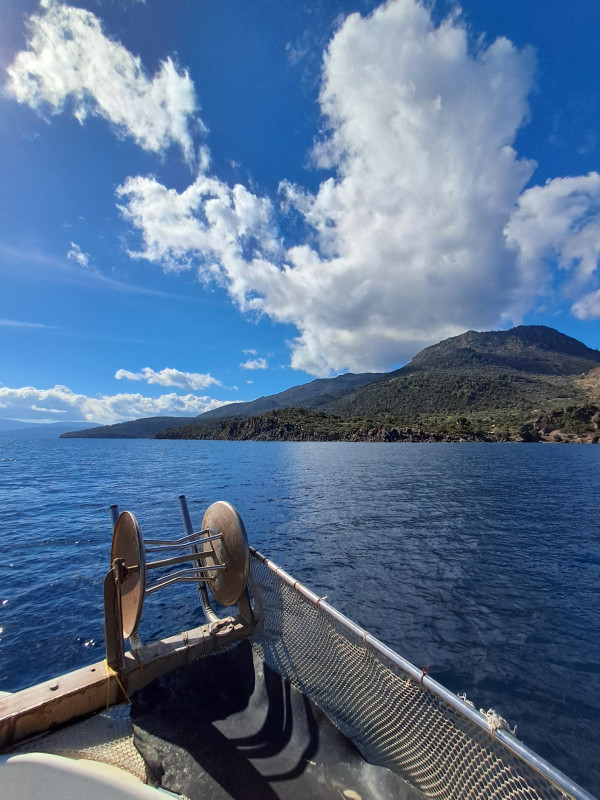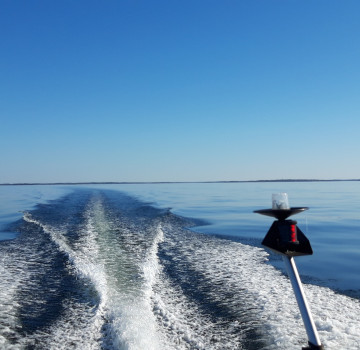How does long-term exposure to low pH impact genetic adaptation, plasticity, and fitness of zooplankton?
Studying the effects of global changes, like ocean acidification, in natural conditions and at an ecosystem level can be challenging. Hydrothermal venting sites in seismically active areas serve as "natural laboratories" that mimic future more acidic conditions. These "natural laboratories" allows us to study environmental change in the ocean. Volcanic carbon dioxide seeping into the sea on the sites creates an extreme environment with lower pH compared to ambient sea water pH. We use carbon dioxide vent in Methana in Greece, where the hydrothermal site release mainly carbon dioxide to sea and only low amount harmful methane, carbon monoxide or sulfuric compounds. Marine species inhabiting areas have been under long-term exposed to low pH, making them ideal subjects for evolutionary research.
Our focus is on the fitness and physiological changes that influence zooplankton adaptation to acidification. We kick in complex study areas about the contribution of genetic adaptation and phenotypic plasticity in adaptation to future, warmer, and more acidic seas with gene-expression analysis of copepod Acartia clausi. We will compare differences in gene-expression, biomarkers and ecological parameters as reproduction and size between zooplankton inhabiting in ambient sea condition and those that inhabit “future” sea in hydrothermal site. We desire to identify key genes for adaptation to low pH.
In addition to field samples, Acartia clausi from Methana and reference population are cultured in common garden in laboratory and after common garden treated in high temperature and low pH to model Methana and the same time future condition. We aim to understand the relationships between genetic adaptation and phenotypic plasticity in more depth with this study set. The project has collaborators Reid Brennan, a specialist in evolutionary genetics, and the Hellenic Center for Marine Research – the Greek institute with strong knowledge and background in marine research. Field and laboratory work will be executed in 2025-2027.

The Peninsula of Methana with its volcano.

